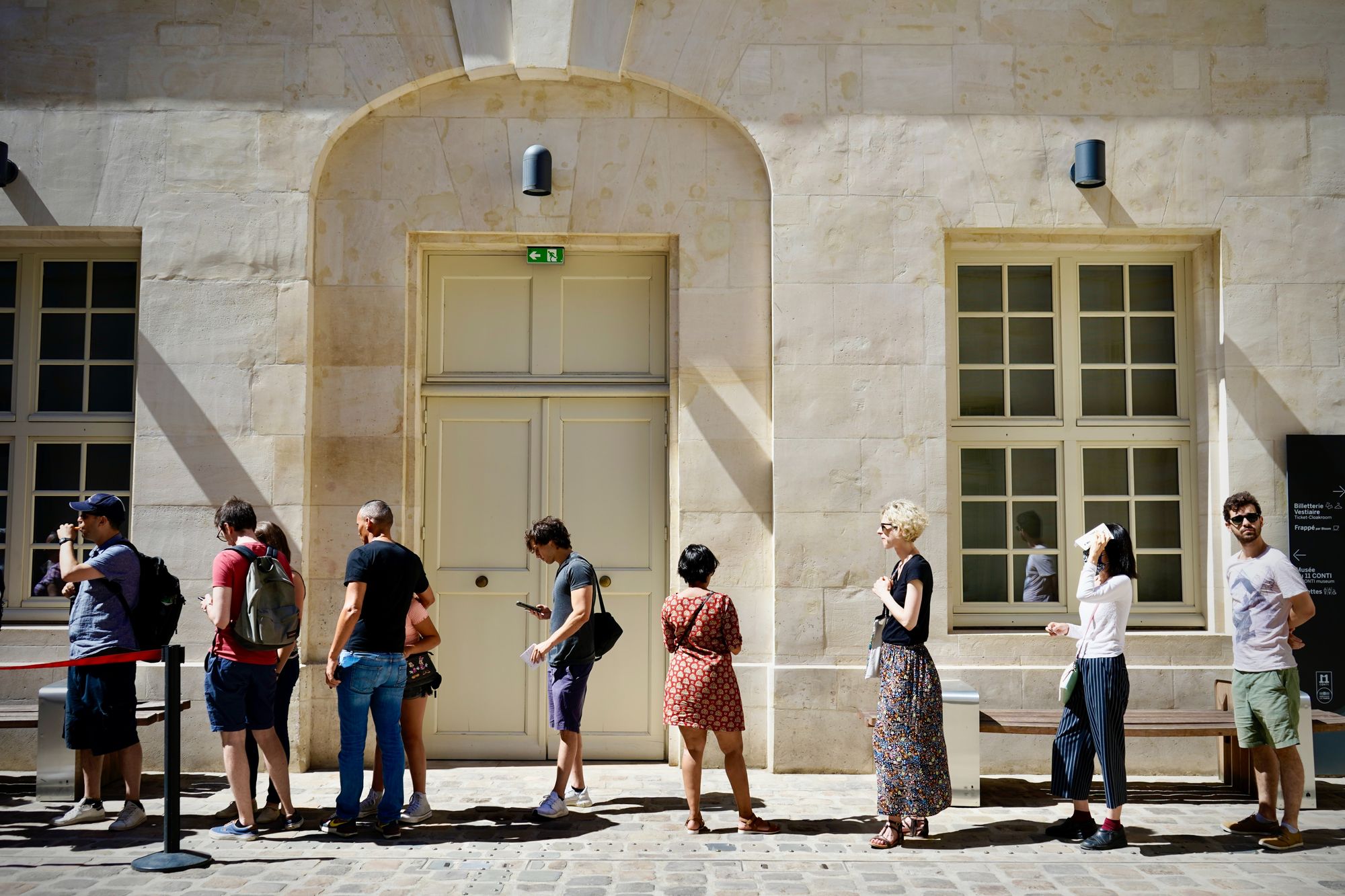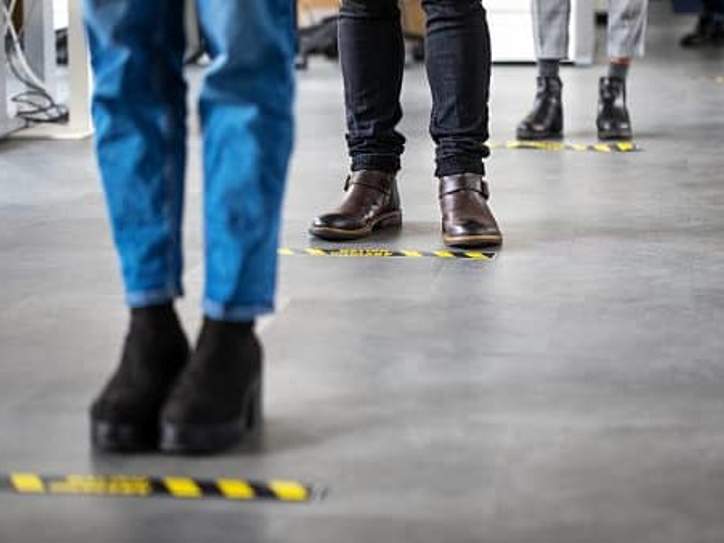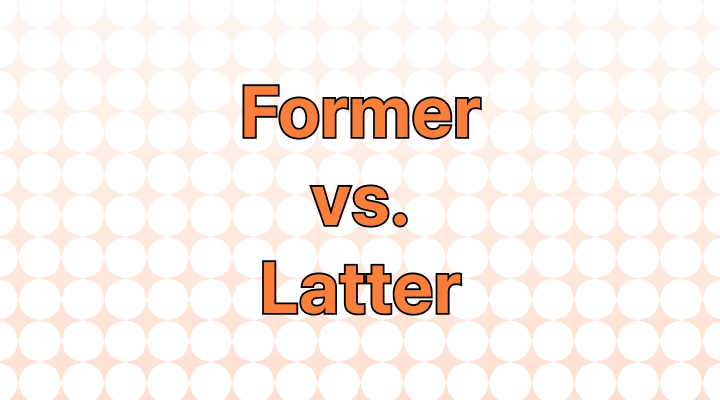Former finds its place at the beginning of a pair, referring to the first of two mentioned items or ideas. On the other hand, latter comfortably rests at the end, representing the second item or idea.

How are former and latter similar?
The similarity between former and latter lies in their purpose - they both act as substitutes for specific nouns or noun phrases. By effortlessly replacing previously mentioned elements, they prevent redundancy and maintain a polished, organized structure in writing or conversation.
How are former and latter used in a sentence?
Former finds its place at the beginning of a pair, referring to the first of two mentioned items or ideas. It's a bridge to the past, a gentle reminder of what came before. On the other hand, latter comfortably rests at the end, representing the second item or idea. It's the contemporary, the recent, the one that waits in line.
Interestingly, "former" and "latter" can only exist in pairs - for every former, there must be a latter, and vice versa. This inherent duality adds a layer of balance to their presence, contributing to the harmony of language.
Using former in a sentence
- Jane used to work as a lawyer, but in her former career, she was a successful journalist.
In this sentence, "former" is used to refer to a previous occupation or role that Jane had before becoming a lawyer. It indicates that Jane used to be a journalist before transitioning to her current career as a lawyer. The use of former helps provide context about Jane's professional background and the change she made in her career.
More example sentences
- John worked as a teacher for five years; in the former two years, he taught high school, and in the latter three years, he taught middle school.
- The company underwent a restructuring, resulting in the former management team being replaced.
- Sarah enjoyed both the action movie and the romantic comedy, but she preferred the former for its intense plot.
- The first recipe used traditional ingredients, while the former was a modern twist on a classic dish.
- The former president delivered an inspiring speech at the conference, drawing on her experiences in leadership.
- In the debate between conservation and development, the former group emphasized the importance of preserving natural habitats.
- Lisa excelled in both mathematics and history, but her passion for the former led her to pursue a degree in engineering.
- The novel had two main plotlines—the former focused on a detective's pursuit of a criminal, and the latter followed a journalist's quest for truth.
- Mark loved both the city and the countryside, but he found the former to be more exciting due to its vibrant culture.
- In the contest between the two candidates, the former mayor emphasized his track record of community engagement
Using latter in a sentence
- The restaurant offers a choice between a vegetarian dish and a meat-based meal; I chose the latter due to my preference for non-vegetarian options.
In this sentence, latter is used to refer to the second option presented, which is the meat-based meal. It helps avoid repetition by referring back to something previously mentioned, in this case, the two meal choices.
More example sentences
- During the meeting, the team discussed various ideas, but they ultimately chose the latter proposal for its innovative approach.
- Lisa enjoyed painting and sculpture, but she found the latter to be a more expressive medium for her artistic vision.
- The scientist presented two hypotheses—the latter theory provided a more comprehensive explanation for the observed phenomenon.
- Jane's first job was at a small startup, and her latter position was at a multinational corporation.
- The two travel destinations were a tropical island and a mountain retreat; the latter appealed to those seeking a cooler climate.
- In the debate on education reform, the latter argument focused on increasing funding for schools in underserved areas.
- Sarah tried two different hairstyles for the party; the first was elegant, but she preferred the latter, which was more casual.
- The book had two parts—the former discussed historical context, and the latter delved into the author's interpretation.
- The musician played both the guitar and the piano, but in his latter performances, he showcased his piano skills.
- The two investment options included stocks and bonds; while the former offered higher returns, the latter provided more stability.
Practice Questions
- I used to live in the city, but now I enjoy the former/latter tranquility of the countryside.
- In the former/latter part of the book, the protagonist faces numerous challenges that shape their character.
- My former/latter job required me to travel frequently, but in my current position, I work primarily from home.
- The students studied both biology and chemistry, but they found the former/latter subject more engaging.
- During my former/latter years as a student, I participated in various clubs and extracurricular activities.
- In the debate between the two theories, the former/latter argument focused on economic factors, while the other emphasized social dynamics.
- Sarah's former/latter hairstyle was a chic bob, but she now sports long, flowing locks.
- The restaurant offers a seafood platter and a vegetarian dish; I opted for the former/latter due to my dietary preferences.
- In his former/latter paintings, the artist explored abstract concepts, while his later works delved into realism.
- Our company went through two CEOs: the former/latter was focused on expansion, and the former/latter prioritized streamlining operations.
If you still are unsure about which to use, try out Engram where you can submit your English sentences to get immediate feedback and suggestions based on how native English speakers write.

Answers to the practice questions:
- latter
- former
- former
- latter
- former
- former
- former
- latter
- former
- former; latter
Reference:














